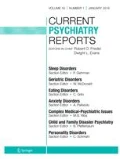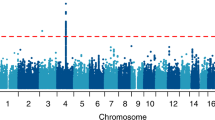Abstract
Purpose of Review
We review the search for genetic variants that affect the risk for alcohol dependence and alcohol consumption.
Recent Findings
Variations in genes affecting alcohol metabolism (ADH1B, ALDH2) are protective against both alcohol dependence and excessive consumption, but different variants are found in different populations. There are different patterns of risk variants for alcohol dependence vs. consumption. Variants for alcohol dependence, but not consumption, are associated with risk for other psychiatric illnesses.
Summary
ADH1B and ALDH2 strongly affect both consumption and dependence. Variations in many other genes affect both consumption and dependence—or one or the other of these traits—but individual effect sizes are small. Evidence for other specific genes that affect dependence is not yet strong. Most current knowledge derives from studies of European-ancestry populations, and large studies of carefully phenotyped subjects from different populations are needed to understand the genetic contributions to alcohol consumption and alcohol use disorders.

Similar content being viewed by others
References
Papers of particular interest, published recently, have been highlighted as: • Of importance
World Health Organization. Global status report on alcohol and health 2018. Geneva: World Health Organization; 2018.
Verhulst B, Neale MC, Kendler KS. The heritability of alcohol use disorders: a meta-analysis of twin and adoption studies. Psychol Med. 2015;45(5):1061–72.
• Edenberg HJ, McClintick JN. Alcohol dehydrogenases, aldehyde dehydrogenases, and alcohol use disorders: a critical review. Alcohol Clin Exp Res. 2018;42(12):2281–97 This critical review covers studies of the the impact of ADH and ALDH genes on alcohol dependence and alcohol consumption, and suggests that functional alleles in ADH1B, ADH1C, and ALDH2 are likely responsible for associations in those regions.
American Psychiatric Association. Diagnostic and Statistical Manual of Mental Disorders: DSM-5: AMERICAN PSYCHIATRIC PUBLISHING; 2013.
Hasin DS, Stinson FS, Ogburn E, Grant BF. Prevalence, correlates, disability, and comorbidity of DSM-IV alcohol abuse and dependence in the United States: results from the National Epidemiologic Survey on Alcohol and Related Conditions. Arch Gen Psychiatry. 2007;64(7):830–42.
Thomasson HR, Edenberg HJ, Crabb DW, Mai XL, Jerome RE, Li TK, et al. Alcohol and aldehyde dehydrogenase genotypes and alcoholism in Chinese men. Am J Hum Genet. 1991;48(4):677–81.
Bierut LJ, Goate AM, Breslau N, Johnson EO, Bertelsen S, Fox L, et al. ADH1B is associated with alcohol dependence and alcohol consumption in populations of European and African ancestry. Mol Psychiatry. 2012;17(4):445–50.
• Gelernter J, Kranzler HR, Sherva R, Almasy L, Koesterer R, Smith AH, et al. Genome-wide association study of alcohol dependence:significant findings in African- and European-Americans including novel risk loci. Mol Psychiatry. 2014;19(1):41–9 This reports a large GWAS of both European-Americans and African-Americans, with different functional loci in ADH1B significant in the different populations, along with ADH1C and other loci (Table 1).
Gelernter J, Zhou H, Nunez YZ, Mutirangura A, Malison RT, Kalayasiri R. Genomewide association study of alcohol dependence and related traits in a Thai population. Alcohol Clin Exp Res. 2018;42(5):861–8.
Park BL, Kim JW, Cheong HS, Kim LH, Lee BC, Seo CH, et al. Extended genetic effects of ADH cluster genes on the risk of alcohol dependence: from GWAS to replication. Hum Genet. 2013;132(6):657–68.
Zintzaras E, Stefanidis I, Santos M, Vidal F. Do alcohol-metabolizing enzyme gene polymorphisms increase the risk of alcoholism and alcoholic liver disease? Hepatology. 2006;43(2):352–61.
• Walters RK, Adams MJ, Adkins AE, Aliev F, Bacanu S-A, Batzler A, et al. Trans-ancestral GWAS of alcohol dependence reveals common genetic underpinnings with psychiatric disorders. Nature Neuroscience 21(12):1656–1669. PMID: 30482948. This reports the largest GWAS to date of alcohol dependence, with strong findings that different functional alleles of ADH1B are significant, rs1229984 in Europeans and rs2066702 in African Americans. It also reports significant genetic correlation of AD with several psychiatric traits, and weaker correlation with measures of alcohol drinking in populations.
• Sanchez-Roige S, Palmer AA, Fontanillas P, Elson SL, Me Research T, Substance Use Disorder Working Group of the Psychiatric Genomics C, Adams MJ, et al. Genome-wide association study meta-analysis of the alcohol use disorders identification test (AUDIT) in two population-based cohorts. Am J Psychiatry. 427 2018;0(0):appiajp201818040369 This GWAS of two large population-based cohorts for scores on the AUDIT and demonstrates that the first 3 questions correlate strongly with alcohol consumption, while the last 7 correlate better with dependence measures. It reports 14 significant loci (Table 1) for AUDIT and the two sub-scales.
Schumann G, Coin LJ, Lourdusamy A, Charoen P, Berger KH, Stacey D, et al. Genome-wide association and genetic functional studies identify autism susceptibility candidate 2 gene (AUTS2) in the regulation of alcohol consumption. Proc Natl Acad Sci U S A. 2011;108(17):7119–24.
Schumann G, Liu C, O’Reilly P, Gao H, Song P, Xu B, et al. KLB is associated with alcohol drinking, and its gene product β-Klotho is necessary for FGF21 regulation of alcohol preference. Proceedings of the National Academy of Sciences. 2016;113(50):14372–7.
Clarke TK, Adams MJ, Davies G, Howard DM, Hall LS, Padmanabhan S, et al. Genome-wide association study of alcohol consumption and genetic overlap with other health-related traits in UK Biobank (N=112 117). Mol Psychiatry. 2017;22(10):1376–84.
Saunders JB, Aasland OG, Babor TF, de la Fuente JR, Grant M. Development of the alcohol use disorders identification test (AUDIT): WHO collaborative project on early detection of persons with harmful alcohol consumption--II. Addiction. 1993;88(6):791–804.
Justice AC, Smith RV, Tate JP, McGinnis K, Xu K, Becker WC, et al. AUDIT-C and ICD codes as phenotypes for harmful alcohol use: association with ADH1B polymorphisms in two US populations. Addiction. 2018;113(12):2214–24.
Bucholz KK, Cadoret R, Cloninger CR, Dinwiddie SH, Hesselbrock VM, Nurnberger JIJ, et al. A new semi-structured psychiatric interview for use in genetic linkage studies: a report of the reliability of the SSAGA. J Stud Alcohol. 1994;55:149–58.
Pierucci-Lagha A, Gelernter J, Feinn R, Cubells JF, Pearson D, Pollastri A, et al. Diagnostic reliability of the semi-structured assessment for drug dependence and alcoholism (SSADDA). Drug Alcohol Depend. 2005;80(3):303–12.
Olfson E, Edenberg HJ, Nurnberger J Jr, Agrawal A, Bucholz KK, Almasy LA, et al. An ADH1B variant and peer drinking in progression to adolescent drinking milestones: evidence of a gene-by-environment interaction. Alcohol Clin Exp Res. 2014;38(10):2541–9.
Meyers JL, Shmulewitz D, Wall MM, Keyes KM, Aharonovich E, Spivak B, et al. Childhood adversity moderates the effect of ADH1B on risk for alcohol-related phenotypes in Jewish Israeli drinkers. Addict Biol. 2015;20(1):205–14.
Boden JM, Fergusson DM. Alcohol and depression. Addiction. 2011;106(5):906–14.
Agabio R, Trogu E, Pani PP. Antidepressants for the treatment of people with co-occurring depression and alcohol dependence. Cochrane Database Syst Rev. 2018;4.
Crum RM, Mojtabai R, Lazareck S, Bolton JM, Robinson J, Sareen J, et al. A prospective assessment of reports of drinking to self-medicate mood symptoms with the incidence and persistence of alcohol dependence. JAMA Psychiatry. 2013;70(7):718–26.
Schuckit MA. Alcohol and depression: a clinical perspective. Acta Psychiatr Scand. 1994;89(s377):28–32.
Prescott CA, Aggen SH, Kendler KS. Sex-specific genetic influences on the comorbidity of alcoholism and major depression in a population-based sample of us twins. Arch Gen Psychiatry. 2000;57(8):803–11.
Kuo P-H, Gardner CO, Kendler KS, Prescott CA. The temporal relationship of the onsets of alcohol dependence and major depression: using a genetically informative study design. Psychol Med. 2006;36(8):1153–62.
Zhou H, Polimanti R, Yang B, et al. Genetic risk variants associated with comorbid alcohol dependence and major depression. JAMA Psychiatry. 2017;74(12):1234–41.
Andersen AM, Pietrzak RH, Kranzler HR, Ma L, Zhou H, Liu X, et al. Polygenic scores for major depressive disorder and risk of alcohol dependence. JAMA Psychiatry. 2017;74(11):1153–60.
Polimanti R, Peterson RE, Ong JS, Macgregor S, Edwards A, Clarke T-K, Frank J, Gerring Z, Gillespie NA, Lind PA, Maes HH, Martin NG, Mbarek H, Medland SE, Streit F, Agrawal A, Edenberg HJ, Kendler KS, Lewis CM, Sullivan PF, Wray NR, Gelernter J, Derks EM. Evidence of causal effect of major depression on alcohol dependence: findings from the Psychiatric Genomics Consortium. doi: http://dx.doi.org/10.1101/412098.
Schizophrenia Working Group of the Psychiatric Genomics C. Biological insights from 108 schizophrenia-associated genetic loci. Nature. 2014;511(7510):421–7.
Wray NR, Ripke S, Mattheisen M, Trzaskowski M, Byrne EM, Abdellaoui A, et al. Major Depressive Disorder Working Group of the Psychiatric Genomics C. Genome-wide association analyses identify 44 risk variants and refine the genetic architecture of major depression. Nat Genet. 2018;50(5):668–81.
Demmie Mayfield, Gail Mcleod, and, Patricia Hall. The CAGE questionnaire: validation of a new alcoholism screening instrument. Am J Psychiatr 1974;131(10):1121–1123.
Martin AR, Kanai M, Kamatani Y, Okada Y, Neale BM, Daly MJ. Hidden ‘risk’ in polygenic scores: clinical use today could exacerbate health disparities. bioRxiv. 2018.
Evans LM, Tahmasbi R, Vrieze SI, Abecasis GR, Das S, Gazal S, et al. Comparison of methods that use whole genome data to estimate the heritability and genetic architecture of complex traits. Nat Genet. 2018;50(5):737–45.
Author information
Authors and Affiliations
Corresponding author
Ethics declarations
Conflict of Interest
Howard J. Edenberg reports grants from NIH (U01MH109532), unrelated to this study.
Joel Gelernter reports grants from the NIAAA (R01AA026364) and NIH (U01MH109532), unrelated to this study.
Arpana Agrawal reports grants from the NIH (DA23668, DA040411, DA042620, DA046436), unrelated to this study.
Human and Animal Rights and Informed Consent
This article does not contain any studies with human or animal subjects performed by any of the authors.
Additional information
Publisher’s Note
Springer Nature remains neutral with regard to jurisdictional claims in published maps and institutional affiliations.
This article is part of the Topical Collection on Genetic Disorders
Rights and permissions
About this article
Cite this article
Edenberg, H.J., Gelernter, J. & Agrawal, A. Genetics of Alcoholism. Curr Psychiatry Rep 21, 26 (2019). https://doi.org/10.1007/s11920-019-1008-1
Published:
DOI: https://doi.org/10.1007/s11920-019-1008-1




